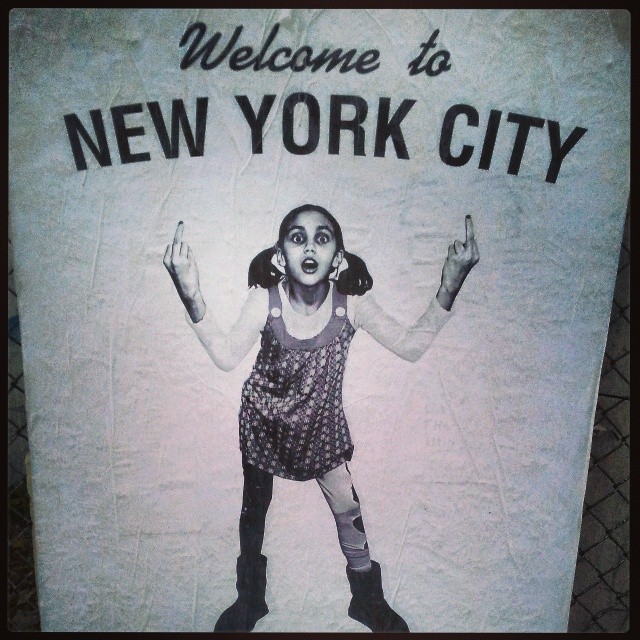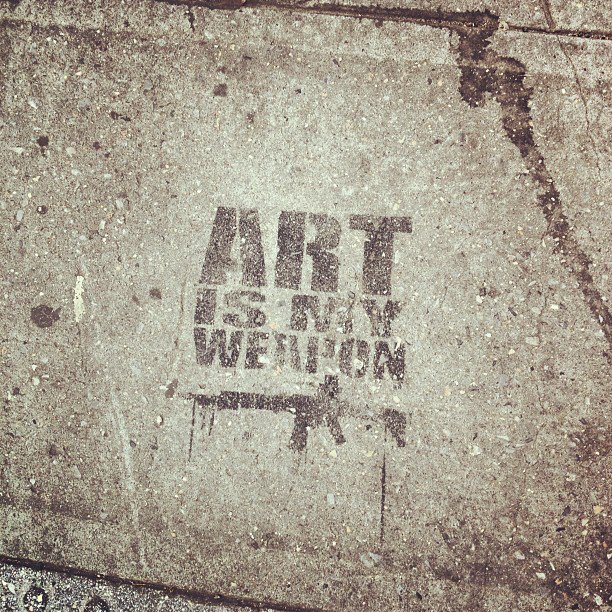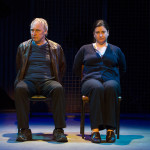May is like January, a gate into so much of the year. Summer is about to start. The big blockbusters start coming out in the movie theaters and we willingly pay around $18 a ticket. Pools, parks, restaurants are about to start blossoming out of nowhere. Tourists start flooding our streets on a more regular basis, being somehow more lost than those that come in other seasons. Theater festivals invade this beautiful city, while Broadway brings the big guns. What gets lost in that shuffle is that it’s also Mental Health Awareness month, and how can it not get lost within that plethora of fun activities bombarding your future? The problem is mental health is what determines how you will enjoy what is considered the best season in our mega-city. So in the spirit of what’s more important, let’s talk about mental health in entertainment.
Mental health is not something that should be ignored. In fact, it is something we should always think about, and be sure to work on. In Puerto Rico there’s a saying that goes “Que mucho loco hay en Nueva York,” which translates to “what a lot of crazy people live in New York.” This saying talks more about the eccentric personalities that live around us, mostly artists that choose to express themselves openly without care of judgment. After all, New York City is a haven for the creative types to come and form a community. But for every person that finds these moments of artistry amusing, there’s somebody working in the industry, suffering from mental health problems in a city that is unforgiving to your mind.
To be an artist of any type is not easy. There’s little money, less stability, and you are constantly being rejected. To be an artist, you have to be passionate about it. To be one with mental health issues, you have to breathe your work. Because the pressure this city has on everyone’s hustle is strong, the constant no’s you hear are straining, the lack of respect, and the short amount of rest…you get the point. All these factors create new mental health problems for many people out there. Anxiety is your everyday friend, while depression is just around the corner. Sadly, while the state of NY is trying to advance treatment and bring more options to the table, people themselves barely talk about their own mental health. Most shove it to the side hoping it will go away. Or worse, give up what they love because they don’t know how to handle it anymore.
In the spirit of the month, this community spotlight will focus on two artists living in NYC who struggle with mental health problems every day. I asked these two individuals 10 questions. One is Theresa Basile, a NYC writer and co-founder of the independent DIY film company Second Star NYC. They run a monthly 7-day challenge in which they write, produce, and release a short in 7 days based on the audience’s suggestions. Besides that, Theresa wrote a novel called Fanged. To know more about her please check out her website http://theresabasile.com/wp/ and her company http://www.secondstar.nyc. The other person in this interview is an actor from England who has made NYC their home for the last several years and has constantly worked on stages all over this city, as well as in films. He or she has asked to remain anonymous, so we’ll call them Anni.
So let’s start with something easy. Introduce yourself, what do you do?
Theresa: My name is Theresa and I’m a writer, actor, and producer. I am the author of a novel and I’ve co-created an original series for the web, set to be filmed in the summer of 2015.
Anni: I am an actress and playwright.
What mental health issue do you live with?
Theresa: I live with clinical depression.
Anni: Depression, but diagnosed as Bi Polar, or rather, Bi Polar tendencies.
Has your work caused any type of strenuous condition that affects your mental stability? Has it created a new mental health issue?
Theresa: For the most part, focusing on my art and working on several different projects has been a benefit for my mental health rather than a strain. If I’m hurrying to meet a deadline and trying to do too many things at once, though, my sleep is affected. No one is at her best when she’s underslept, but when you’re underslept and struggling with depression, small problems can seem insurmountable.
Anni: I feel that work has actually had both a positive and negative influence. Before I knew how to channel my emotions and thoughts, be mindful and use the fuel, I was in an incredibly dark and dangerous place. The stress of constantly being in a grey area – am I working, am I not? Will I work, won’t I work? – was something that was very difficult to deal with. It was more of a self-imposed stress due to not having a structure to the day. I don’t think that the ‘rejection’ of work so to speak or feeling that I’m maybe not pretty, tall, blah blah enough had an influence as much as the lack of focus.
Art is cathartic. I learned to use what I was going through to fuel writing, or would see a play or film and recognize the humanity in what I was seeing and in myself, understood that we are all the same and have the same capabilities and emotions, so I used my art to express it.
There is no doubt that I feel ashamed of having to ask my family for help at my age. There is no doubt that every time it comes to the moment when you’re not sure if a production will come to fruition of not and if it will be ‘good’, that I have a moment of possible meltdown and let the depression take over. It is strenuous. But I did learn to use what I was bottling up inside.
How do you feel about NYC? How does the city culture ( i.e the every day hustle) itself affect you directly? How does it compare to other places you have lived in?
Theresa: The hustle of New York City can sometimes be overwhelming, but I also know I wouldn’t have it any other way. I can never say, “There’s nothing to do around here.” Keeping active is good for me and my mental state. I have a hard time imagining myself being happy in a city less busy and vibrant.
Anni: I think it’s an amazing community of artists and if you have the openness and desire, you can be a part of something every day. You can go to readings, go to a museum, heck, sit in a diner and get talking to someone at the counter – that didn’t happen so much in the UK, it’s not as open, or wasn’t when I lived there. I feel like I can be an artist here rather than just an actor. The hustle is tough, very tough, and I want to get the fuck out frequently, go and sit in the forest and breathe, but I also need that pressure and drive.
How does your art help you? It’s hard to cope in such a hard city with issues beyond our control, how does your work determine your life?
Theresa: My work is what I keep going back to remind me of who I am if my illness tricks me into feeling down about myself. It reminds me that I’m creative and talented and have a lot to offer the world.
Anni: I play. I know that when I get into that rehearsal room, or read a play with friends, or even write, I can fuck around as much as I want and explore whatever is going on. Instead of ignoring what I’m feeling, I accept it and go from wherever I am that day.
When you started doing this, and knowing the many mental threats that exist for people in this industry, what did you seek to do? How did you think you could deal with it? How have you dealt with it?
Theresa: When I first started focusing on my writing and making that the priority in my career, I had not yet been diagnosed with depression and wasn’t taking steps to treat it. Every day that I spent not finishing a draft or getting published made me feel worse about myself. I didn’t think there was anything that could be done and that I was doomed to be sad forever. I hit a very low point before I finally sought help. I now treat it with a combination of prescribed medication and therapy, and they’ve both been very helpful.
Anni: I found it incredibly worrying and sad that a large majority of the artists I know are addicts or suffer with depression, anxiety, a whole array of things. I think that as artists we perhaps take on more of the energy of what’s around us than others. Art comes from a need to communicate and it is a reflection of life – that can be difficult to handle. Knowing that I had a ‘history’ I certainly had a fear that I would slip into the same habits as others, and there were times I did. It did not stop me from wanting to be an actor or writer however, but I did have many conversations with myself saying – well, if the whole going out and getting wasted with the cast is part of it, it’s part of it. If the depression and anxiety is something everyone goes through, I’ll go through it too. I dealt with it in the same way many people do – learning to do things for myself, because I wanted to and needed to, not because I thought I had to.
What is your first thought in the morning when you wake up?
Theresa: My first thought in the morning when I wake up is usually, “Just 15 more minutes.”
Anni: Is my 21 year old cat still alive?
Let’s have a little fun: Dream project and why?
Theresa: Asking me to pick only one dream project is like asking parents to pick their favorite children, but if I had to choose one, I’d turn my superhero romantic comedy action/satire into a novel, a graphic novel, a play, a film, or a series – or all of the above.
Anni: Oh boy…a mix between ‘Festen’ and ‘Girl with The Dragon Tattoo’ – the original.
Best project you’ve done for your mental health.
Theresa: The best project I’ve done for my mental health is the original series created for the web, Working Title. Working collaboratively with good friends is a natural anti-depressant. The energy among the four of us is alive and pulsating with creative chemistry. It gives me more hope for my creative future than anything I’ve worked on before.
Anni: Backpacking around SE Asia and China and letting myself be open to whatever fears and wonders the world has to throw at me.
Anything to say to people out there that feel their mental stability (or instability) can hold them back?
Theresa: You are not the only one in the industry with a mental illness. There are others who struggle with similar issues, and you’re not alone. There are also affordable, sliding-scale therapy options in the city for treatment and a lot of resources you can go to for help.
Anni: Learn to ask for help and let people who want to help you, help you. It’s very hard to do, but reaching out and having human contact is a true gift.
Thank you to both amazing ladies for opening up about this. Anxiety disorders affect 18% of the adult population in this country. It’s time people start talking about it. For more information on mental health and how to get help, please visit: https://www.omh.ny.gov and if you can’t find something there, just google it. There’s help out there, please don’t be afraid to find it.
Stay Healthy!










